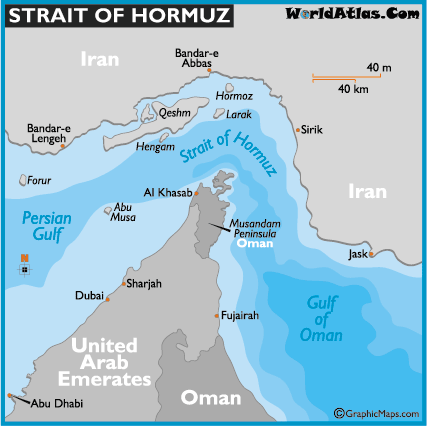Glenn Greenwald, a journalist for Salon.com published an excellent article that exposed the use of former high-ranking US servicemen to provide objective analysis on issues on national defence on NBC something that would be of non-issue if the same "experts" were not hired by various defence contracts and have a clear conflict of interest with providing the public with information that could damage their employees healthy war profits.
Former General Barry McCaffrey is one of those so called "experts" that has come to notoriety, as it has become public knowledge that he presented a presentation to the top editors of NBC entitled Iran & the Gulf: Creeping towards war" a blatant propaganda piece meant to incite conflict which we can now see thanks to the presentation slides being leaked
"It is in my opinion that we are now in a high-risk situation in the Gulf with a significant probability of Iranian escalation within the next ninety days" - General McCraffrey
This news seems pretty alarming until you read the sentence just below the paragraph which states that the United States Navy is moving three carrier groups into the region. Three Carrier Groups? One Carrier group is enough to cause serious damage to Iran, how do you expect the Iranian regime to react when the most powerful navy in the world is flexing it's muscles right outside your front door? The American media and government went crazy over the Iranian Navy sending a singular frigate into the Mediterranean to meet up with it's Syrian counterparts on a training exercise so why can't the Iranian regime show a similar reaction over a much large task force arriving near to it's sovereign territory for no explicit reason.
 |
| A single carrier group (USS Ronald Reagan) |
The report also claims the conclusion from an intelligence assessment that claims that the Iranian Navy lack the capability to close the Strait of Hormuz, according to this presentation the Iranian Military could not just close the Strait of Hormuz but also strike GSC economic targets with "highly advanced aircraft" and it's a "high probability" that the Iranians could sink a US aircraft carrier, pretty hilarious if you read other sections of the report on the Iranian military as it views the capability of the Iranian military, calling the aircraft of the Iranian air-force "obsolete" and the command structure of the Iranian air-defence network "weak and vulnerable to electronic warfare"
 |
| Strait of Hormuz |
Why would the Iranian Navy even consider closing the Strait of Hormuz? Due to the large amount of economic sanctions placed on the country the Iranian economy has become increasingly dependent on the sale of oil and natural gas to a small amount of countries that are still willing to trade with Iran, closing the route this oil travels down with sea-mines and submarines would kill the Iranian economy and lead to de-stabilization that could even topple the Iranian regime, closing the strait would also result in direct military intervention from the oil rich countries which also depend on the strait for economic survival and the United States and i'm guessing that the Iranian regime don't wish to see a large part of their military destroyed.
Stopping the spread of nuclear proliferation seems to be a common trend with those supporting military intervention with Iran, something taken from the build-up to the Iraq war when so called "experts" claimed that the Iraqi regime had the capability to launch nuclear missiles at Israel and other American strategic assets in the region. This report adds to the propaganda claiming that the Iranian regime has the capability to construct nuclear weapons in "60 months" and "strike against targets in Israel, GCC States and US regional US forces" so Iran is going to have the capability to strike with a nuclear weapon in five years? Even if this fact is true why would it matter? Israel has it's own nuclear weapons and any strike against Israel would result in direct nuclear relation against the Iranian state that would result in complete and utter destruction and the loss of tens if not hundreds of thousands of lives. The presentation also fails to include the opinion of the Supreme Leader of Iran who says on his official website
"We believe that using nuclear weapons is haraam and prohibited and that it is everybody’s duty to make efforts to protect humanity against this great disaster." - Supreme Leader of Iran Khameni
Israeli Mossad Chief Tamir Pado has even been heard by Israeli ambassadors and envoys claiming that even a nuclear Iran would not threaten the continued existence of the Israeli state and Former Mossad Chief Effaim Halevy has been quoted saying the same thing and believes that Israel and Iran can return to peaceful relations enjoyed before the Iranian revolution
"What is the significance of the term existential threat?" the ambassadors quoted Pardo as asking. "Does Iran pose a threat to Israel? Absolutely. But if one said a nuclear bomb in Iranian hands was an existential threat, that would mean that we would have to close up shop and go home. That's not the situation. The term existential threat is used too freely."
I think Israel is strong enough to protect itself, to take care of itself. I think ultimately it is not in the power of Iran to destroy the state of Israel,” - Efraim Halevy
It appears then this report is another piece of propaganda made be employees of the defence contractor to bait the United States and it's allies into another middle eastern conflict to bolster their already massive profits with the blood of soldiers and innocent civilians.
Leaked presentation source: http://media.salon.com/2012/02/Scan0011.pdf











